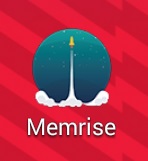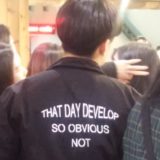Water Meat and New Gold: Fun With Korean Vocabulary
 During this phase of the Couch to Korean Challenge, I have been focusing almost exclusively on vocabulary. Building vocabulary is the most important part of learning any new language. Unfortunately for me, Korean vocabulary draws very heavily from words of Chinese origin, and I have no background at all in any Chinese languages. So I could not bootstrap my vocabulary using cognates that I already knew, and for the most part I had to start from scratch and learn every word. Fortunately though, the Chinese-influenced Korean vocabulary builds on a finite set of Chinese semantic morphemes. For example, from the Chinese root 학 / hak, meaning “learning” or “study,” I can build up words like 학생 / hakseng (“student”) and 학교 / hakkyo (“school”) and 학년 / haknyoen (“school year”). I think if I had decided to do the Couch to Mandarin Challenge first, then the subsequent Couch to Korean Challenge would have been a much shorter race.
During this phase of the Couch to Korean Challenge, I have been focusing almost exclusively on vocabulary. Building vocabulary is the most important part of learning any new language. Unfortunately for me, Korean vocabulary draws very heavily from words of Chinese origin, and I have no background at all in any Chinese languages. So I could not bootstrap my vocabulary using cognates that I already knew, and for the most part I had to start from scratch and learn every word. Fortunately though, the Chinese-influenced Korean vocabulary builds on a finite set of Chinese semantic morphemes. For example, from the Chinese root 학 / hak, meaning “learning” or “study,” I can build up words like 학생 / hakseng (“student”) and 학교 / hakkyo (“school”) and 학년 / haknyoen (“school year”). I think if I had decided to do the Couch to Mandarin Challenge first, then the subsequent Couch to Korean Challenge would have been a much shorter race.
In the course of learning Korean vocabulary, I have come across many words (and their origins) that I found interesting and/or amusing:
- New Gold: 세 / se means “new” and 금 / kum means “gold”, so 세금 / sekum is literally “new gold” but actually means taxes
- Room Door: 방/ pang is “room” and 문 / mun is door, so 방문 / pangmun might be “room door” but actually means visit
- Song Room: Another good room word is 노래방 / nolepang, where 노래 / nole means “song”. So 노래방 / nolepang is “song room” or karaoke. A 노래방방문 / nolepang pangmun is thus a “Karaoke visit.”
- Eye Water: 눈 / nun is “eye” and 물 / mul is water, so 눈물 / nunmul is “eye water” or, logically enough, tears
- Neck Sound: Lots of fun words contain 목 / mok (“neck” or “throat”). For example, combine it with 소리 / sori (“sound”) and you get 목소리 / moksori, “neck sound” or voice
- Neck Hanger: 걸이 / koeri comes from the verb 걸다 / koelda “to hang”, so 목걸이 / mokkoeri might logically be “neck hanger” or “noose”. But actually it is necklace. Similarly 귀/ kwi is “ear” and 귀걸이 / kwikoeri is “ear hanger” or earring. But 옷 / ot is clothes and 옷걸이 / otkoeri is clothes hanger and not “something hanging from clothes.”
- Throat Dry: 마른 / marun is “dry” and thus 목마른 / mokmarun is “throat dry” or thirsty
- Foot Neck: 발 / pal is “foot” so 발목 / palmok is “foot neck” or ankle
- Hand Floor: Body parts are always fun. For example, 손 / son is “hand” and 바닥 / padak is “floor” so 손바닥 / sonpadak is “hand floor” or palm
- Alcohol House: 술 / sul is “alcohol” and 집 / chip is “house” so a 술집 / sulchip is an “alcohol house” or a bar
- Water Meat: 고기 / gogi is “meat,” and combined with an animal word becomes a type of meat. For example, 소 / su is cow so 소고기 / sugogi is “cow meat” or beef. 돼지 / tweji is “pig” so 돼지고기 / twejigogi is “pig meat” or pork. There is even 고양이고기 / koyangigogi (“cat meat”) and 개고기 / kegogi (“dog meat”). Then there is 물 / mul (“water”) which gives us 물고기 / mulgogi (“water meat”). But what is “water meat”? It is not meat made from water, but apparently meat found in water, or fish.
- 3rd Degree Relative: Korean borrows the Chinese word 촌 / chon (“degree of kinship”) to describe how closely related two people are. Your parents are 1st degree relatives, and your siblings are 2nd degree relatives. 삼 /sam is the Sino-Korean word for the number 3, and 삼촌 / samchon is your 3rd degree relative, your uncle. 사 / sa is the Sino-Korean number 4, so 사촌 / sachon is your 4th degree relative, your cousin.
- Very Mother: 아주 / aju means “very” and 어머니 / oemoeni is “mother” so 아주머니 / ajumoeni is literally “very mother.” It is used as a respectful term for a woman older than you, similar to English ma’am
- Ten Car: 열 / yul is the Korean word for the number 10 and 차 / cha is a “car” so 열차 / yulcha is a “ten car” or a train
- Arbeit: One of the joys of learning a completely unfamiliar language is stumbling upon unexpected connections to other languages. Korean has plenty of words from Chinese, English, and Japanese, but I was surprised to find a couple connections to German as well. 아르바이트 / arubaitu is a direct transliteration of “Arbeit,” the German word for “work.” In Korean, arubaitu is a part-time job. I find this German loanword particularly amusing because the German word for part-time work is an English loanword: Der Job.
- Hand Phone: It has always puzzled me that the most common German word for cell phone is “das Handy.” Many Germans are convinced that this is a direct borrowing of the English word and will use “My Handy” in English to refer to their phone. (In reality no native English speaker ever calls a cell phone a Handy except possibly when making fun of the German use of the word.) So I was surprised to find that one of the common Korean words for cell phone is 핸드폰 / hendupon, likely a transliteration of “hand phone.” Which makes me wonder if the origin of the German “Handy” could have been from Korean (or vice versa?). I did find an interesting Language Log post that refers to a 1990s Asian product called the Personal Handy-phone System.
There is a whole category of fun Korean verbs, such as 뚱뚱하다 / dungdunghada (“to be fat”), that contain repeated (and often onomatopoeiac) syllables. But that is a topic for another day.
Share this Lexplorers post:











“세금 / sekum is literally “new gold” but actually means taxes”
If you look up 세금 in a dictionary you might see that the Hanja for it is 稅金. So in this case 세 is 稅, which means “tax”, and not “new”. So 세금 actually literally means “tax gold” rather than “new gold”.
Similar thing for 방문, 방문 does mean “room door” if you’re using the 房(room)門(door) meaning, or means “visit” if you’re using the 訪(visit)問(visit, ask) meaning.
In other words there are many homophones in Korean, so try not to associate a sound like 새 with a meaning (like “new”) or you might get more confused later on.